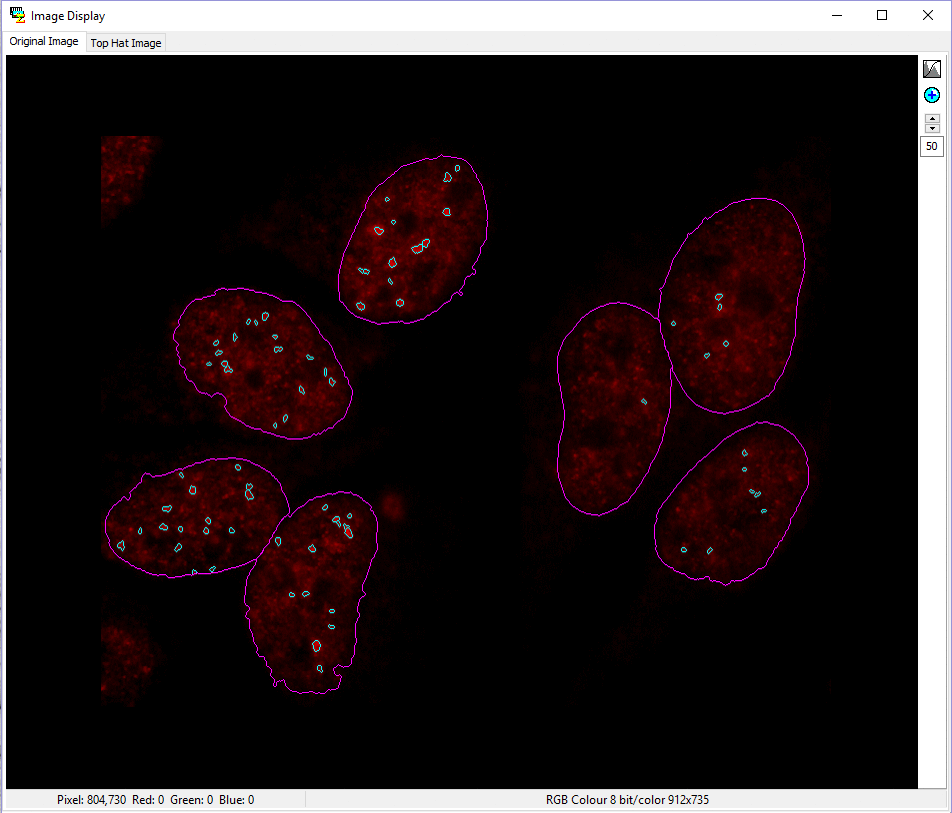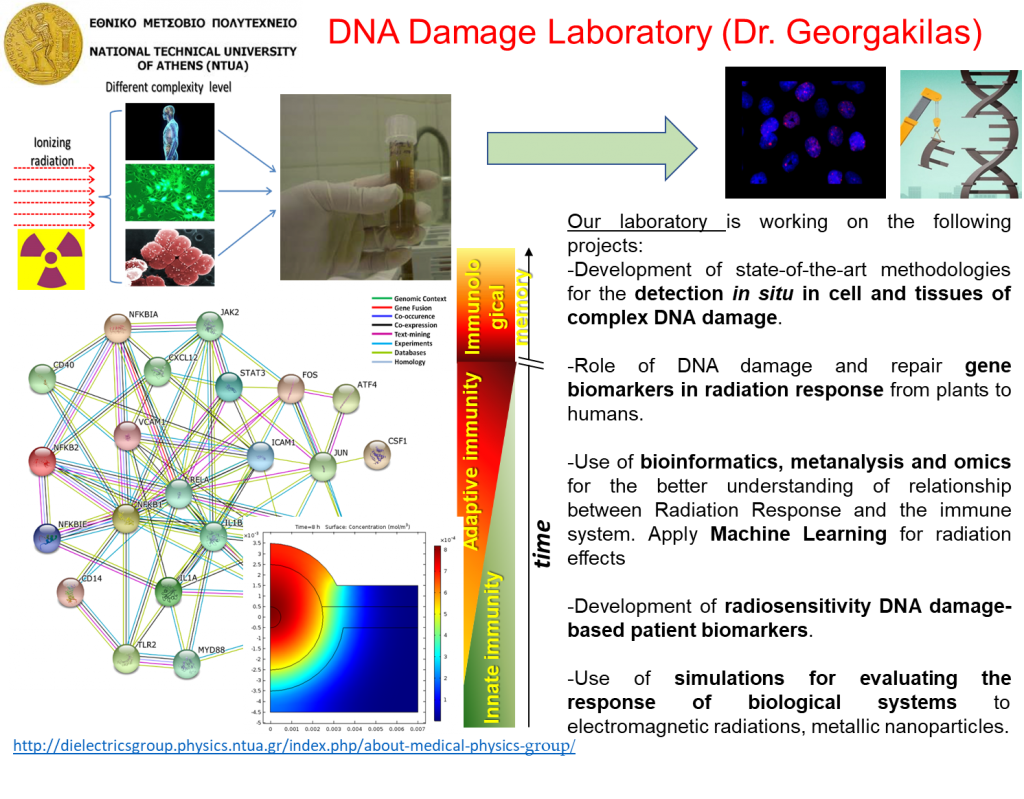

About our group
Our group is part of the Applied Physics Department of NTUA and our lab is situated in Room 111 of the 1st floor of Physics Department in NTUA Zografou Campus. Our main focus is the role of complex DNA damage in the determination of biological response of human cells to IR. Our group employs different methodologies in the detection of DNA damage. The complexity of damage is expected to increase with increasing radiation LET. Therefore and for all current hadron therapies involving protons or carbons, the study of the induction of clustered DNA damage and its repair is of major biological and clinical importance. Our group is also part of the NTUA Dielectric group and uses different biophysical methodologies like Dielectric Relaxation Spectroscopy, AFM and others for the detection of DNA damage in vitro. The latest years our group has developed specific bioinformatics approaches for the proper understanding of radiation effects and use of the accumulating omics data existing in the literature and in the group.
Our group is working on several projects
- creation of a Natural product database (https://naturaprodb.web.app/) which includes the anticancer action of various kinds of food and their active ingredients and specifically the genes that they target.
- development of a Gene expression database (http://radbiodb.physics.ntua.gr/) for radiobiological responses.
- development of state-of-the-art methodologies for the detection in situ in cell and tissues of complex DNA damage
- role of DNA damage and repair gene biomarkers in radiation response from plants to humans
- development of radiosensitivity DNA damage-based patient biomarkers
- use of bioinformatics, metanalysis and omics for the better understanding of relationship between radiation response and the immune system

